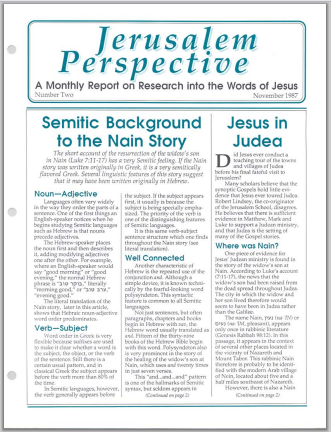One title applied to Jesus is not so clearly messianic: “Prophet.” There can be little doubt that Jesus viewed himself as a prophet, and that many of his contemporaries concurred.
Jesus the Prophet
Jesus claimed to be a prophet when he quoted the popular saying, “No one is a prophet in his own village,” going on to compare himself to Elijah and Elisha (Luke 4:24-27). He made the same claim when he said, “It cannot be that a prophet should perish away from Jerusalem” (Luke 13:33).

One possible candidate for the New Testament city of Nain was located in the Judean wilderness east of Jerusalem. Photograph by David Bivin.
But what did the people of Nain have in mind when they exclaimed, “A great prophet has been raised in our midst!” (Luke 7:16)? Since they had just witnessed the bringing to life of a dead man, a miracle that also had been performed by Elijah (1 Kgs. 17:17-24) and Elisha (2 Kgs. 4:18-37), one might conclude that the people viewed Jesus as a prophet of the stature of these or other biblical prophets. However, the language of their exclamation suggests a connection with a scriptural passage that points to a more radical conclusion.
Prophecy of Moses
Moses told the people: “A prophet from your midst, from your brothers, like me, will raise for you the Lord your God. To him you must listen” (a literal translation of Deut. 18:15).
Premium Members and Friends of JP must be signed in to view this content.
If you are not a Premium Member or Friend, please consider registering. Prices start at $5/month if paid annually, with other options for monthly and quarterly and more: Sign Up For Premium

- [1] For more on the Nain story, see the articles, “Semitic Background to the Nain Story” and “Jesus in Judea.” ↩



